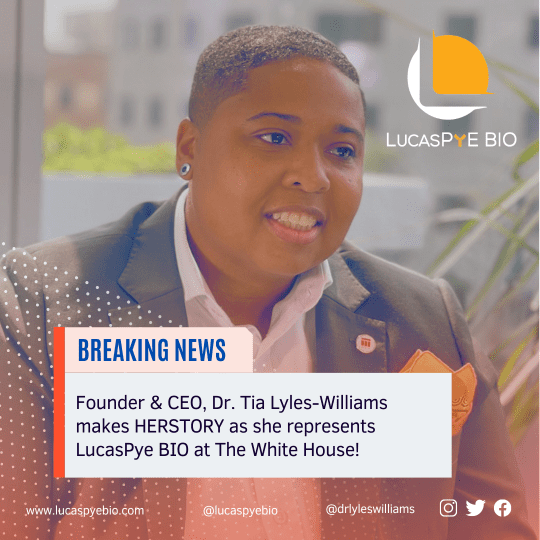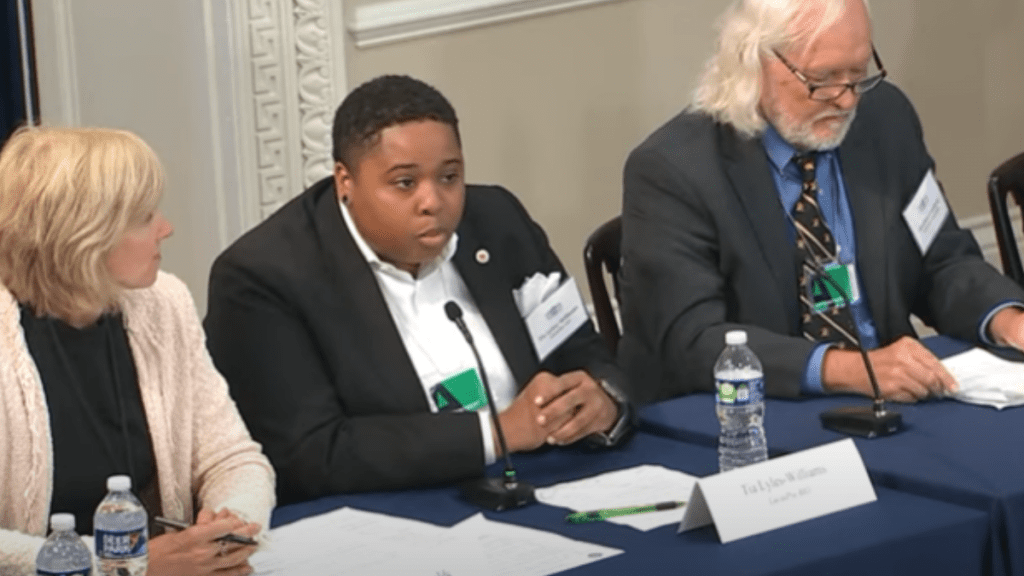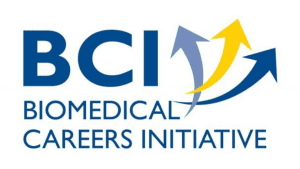
LucasPye BIO CEO Dr. Tia Lyles-Williams Ready to Support White House Biomanufacturing Initiative
The federal government will invest more than $2 billion to boost biomanufacturing and the state of the bio-economy in the United States and companies across the Biohealth Capital Region and Cellicon Valley are rushing to prepare for the coming opportunities and challenges.
Dr. Tia Lyles-Williams, Chief Executive Officer of Philadelphia-based LucasPye BIO (LPB), a biologics contract development and manufacturing organization (CDMO), is ready to embrace the work ahead in order to expand opportunities for her company, as well as for other biomanufacturing organizations across the country.
Recently President Joe Biden outlined the goals of the new initiative during a White House summit attended by Lyles-Williams. The $2 billion initiative will bolster manufacturing through new training programs. Additionally, it will fund improvements in technology to ultimately lower prices, create jobs, strengthen supply chains, improve health outcomes, and reduce carbon emissions.
RELATED: In Conversation with Tia Lyles-Williams, Founder and CEO of LucasPye BIO and HelaPlex
Under terms of the initiative, the Department of Defense will invest $1 billion in bio industrial domestic manufacturing infrastructure over five years in order to catalyze the establishment of the domestic bioindustrial manufacturing base accessible to U.S. innovators. The government program is expected to provide incentives for private- and public-sector partners to expand manufacturing capacity for products important to both commercial and defense supply chains. Included in the executive order is $40 million to expand the role of biomanufacturing for active pharmaceutical ingredients and starting materials that are used to develop essential medications. The funds will also provide for future responses to pandemic-like threats.

LPB, founded by Lyles-Williams in 2018, is the only large-scale biologics CDMO in Pennsylvania. LPB offers a wide range of services to its clients, including proprietary cell line development, bioprocess development, consulting, and cGLP small scale bioprocessing.
In a conversation with BioBuzz, Lyles-Williams said it was a “phenomenal” experience to take part in the White House roundtable. As a student at Washington, D.C.-based Howard University, Lyles-Williams said she often walked the National Mall, home of the Lincoln Memorial and Washington Monument. However, in all the time she was in school, Lyles-Williiams said she had never visited the White House.
“It was really cool thinking about me being an African American woman and thinking about what all my ancestors went through in order to provide me a pathway to be there,” Lyles-Williams said.
Jobs Training
The White House initiative also provides for an expansion of the National Institutes of Health I-Corps program, which is a biotech entrepreneurship bootcamp. The program, in partnership with the National Society for Black Engineers, aims to create pathways to biomanufacturing and biotechnology careers for underrepresented students. This will be funded in part through a $68 million investment from the Agriculture and Food Research Initiative to train the next generation of research and education, professionals, according to the White House.
Looking at the early outlines of the federal plan, Lyles-Williams likened it to the Works Progress Administration, the New Deal public works program of the 1930s. The initiative from the Franklin D. Roosevelt administration put millions of men and women to work in manufacturing roles. Lyles-Williams said the new White House initiative will now put Americans to work manufacturing medications, medical supplies, and more.
“There’s a real opportunity to make large investments and turn the economy around, particularly in black and brown neighborhoods,” she said.
For marginalized communities, Lyles-Williams said this is an important message. This federal program will help provide a pathway to employment and let people know they can play a greater role in life sciences beyond simply being a patient. She explained that typically the majority of people who make drugs in manufacturing facilities are people of color. Lyles-Williams said not only will this federal initiative increase the number of people working in biomanufacturing, but it will also ensure greater financial equity by providing incentives to offer living wages.
“This gives people an opportunity to work anywhere in the world,” she said of the federal program, noting how it will be able to enhance training efforts taking place across Philadelphia, including places like the Jefferson Institute of Bioprocessing, the first place of higher learning in the United States that provides specialized education and training for biopharmaceutical processing.
Lyles-Williams expressed her excitement about the federal support for manufacturing and training but she called it an overdue response. Beyond opening new training pathways, Lyles-Williams called on the government to ensure equitable leadership in the biopharmaceutical industry.




